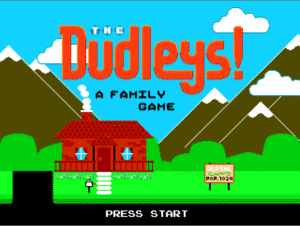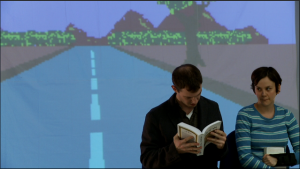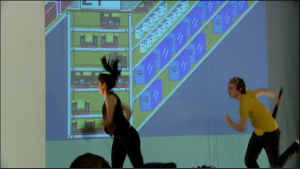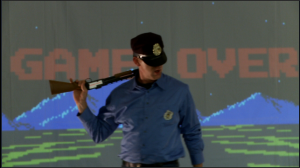- Fredrik 8580 by Fredrik http://ow.ly/2xnbg #
- Twelve Hours left till Famicompo 7 voting http://ow.ly/2xni6 #
- Inchworm drawing app resurfaces as DSiWare, coming 2011 http://ow.ly/2xovC #
- ‘Pixels On Stage’ reviews The Dudleys! http://ow.ly/2xq0f #
- RT @gozombierecords: We’ve pushed back the deadline for our CHIPTUNE Compilation! You have until Dec 1. http://fb.me/FFxKLUoz #
- You’re invited to a Scott Pilgrim soundtrack listening party via Joystiq http://ow.ly/2xzyb #
Tag: The Dudleys
-
TCTD Links for 2010-08-31
-
TCTD Links for 2010-08-27
- RT @Lazerbeat The BRK Sample Slowed Down By Over 8000 Percent. http://lazerscale2010.com/track.php?id=1013 (cont) #
- RT @anamanaguchi WE HAVE SOME AMAZING NEWS!!! Scott Pilgrim vs. the World: The Game soundtrack will be released WORLDWIDE 8/30!!! #
- Electric Playground chiptunes segment at 2:42 http://ow.ly/2vD6O #
- Refried Beans: Wherein a Mexican Sees The Magic That is Anamanaguchi w/ video http://ow.ly/2vDg9 #
- Pulsar Progress updates http://ow.ly/2vDoZ #
- ItyBitySoundSystem Show mix- Check out the event: http://ow.ly/2vJh1 #
- Cerebral Pop: Insufficient Funds: 8bitpeoples profile http://ow.ly/2vPu2 #
- Chip musician Makes Soundtrack For Fake, Manga-Inspired Retrogame http://ow.ly/2vPur #
- RT @calmdownkidder: 2 new eps of “The ChipMusic Hour” up! http://calmdownkidder.com/radio/ #
- The Dudleys reviews – See it this weekend! http://ow.ly/2vWgJ #
- Tracker Terror Khades http://ow.ly/2vWzl #
- Pouet banned in Shanghai http://ow.ly/2vXs4 #
-
Interview with “The Dudleys!” playwright Leegrid Stevens
TCTD had a chance to speak with “THE DUDLEYS” playwright about the process of incorporating the chip music and graphics aesthetics into a scripted work of drama, and other challenges working in the genre.
THE DUDLEYS! takes the adolescent memories of a man and translates them into a malfunctioning 8-bit video game, the kind he used to play as a young adult. But instead of Megaman or Punch-Out, he plays The Dudleys, his own family of fifteen years ago, during the aftermath of his father’s death. Featuring a live band with original music composed on vintage video game equipment (Atari, Gameboy, Commodore 64) and 8-bit video footage, THE DUDLEYS! pits the two dimensional world of happy endings up against the confusion and aimlessness of real life.
What is your background in the theater?
[Leegrid Stevens] I graduated from Southern Methodist University in 2000 and immediately moved to NY. I’ve been writing and directing shows in the city since then and recently graduated from Columbia’s MFA playwriting program. You can find a few of my plays in print: Post-Oedipus, Sun Stand Thou Still, Lovers in the Park, and Leda’s Swan.
How did you first become aware of chip hardware culture?
[Leegrid Stevens] A friend sent me an mp3 of Treewave and told me the instruments he used were an Atari, C64, and a dot matrix printer. When I heard the song (Sleep) I was blown away and immediately wanted to be able to create music with the junk that used to dominate my life. At that time I wasn’t aware that there were more bands than just Treewave doing chip music and it wasn’t until I saw them play at Deitch Projects that I became aware of the whole chiptune scene. After attending Blipfest in Chelsea that year I was completely hooked.
What was the appeal to incorporate this in your own work?
[Leegrid Stevens] That Deitch Projects show really influenced me a lot. Corey Arcangel was running his Super Mario Movie on a loop in the lobby and I had a bizarrely emotional reaction to it. Mario was trying to navigate through a malfunctioning and nonsensical world, trying to understand the objective of the game itself and make sense of his existence. It was hilarious and incredibly sad at the same time. It seemed to capture how I sometimes felt about the real world. How the bits of cheery, positive things were told as a kid seem to disintegrate and lose integrity as we get older and we’re left with the remnants of a world view that doesn’t seem to be working anymore. The chip scene was empowering to me by taking those pieces and refashioning them into something that I could relate to now.
Later in the show Nullsleep hooked up a computer keyboard to an NES or Gameboy (I can’t remember now) and played it like a guitar. It was amazing to me that he could make that game boy say what HE wanted it to say. He could make it spit out ugly bass or he could make it squeal like a distempered baby. After that I scoured eBay for old Atari, Gameboy, and C64 consoles and began experimenting with the music. At that point it was inevitable that it was going to come out in my writing.
What role does chip hardware derived sound and graphics play in The Dudleys?
[Leegrid Stevens] The idea of the play is basically to take a person’s family and make it a video game. I wanted to translate domestic dysfunction into video game language. For instance, the mother in the play is depressed and contemplating suicide. In one of the scenes, her son accidentally plays the Contra code on her, giving her 30 extra lives. She spends the rest of the game trying to get rid of all her lives, she hangs herself, overdoses on pills, drives off a cliff, but each time only reduces her life total by one. She ends the play with something like 23 lives and eventually tires of her suicides.
To make these metaphors work we basically tried to create a live video game complete with video, music, sounds etc. Nearly all the sound is generated from 8-bit sources. Only the shotguns (for killin’ zombies) is not completely 8-bit. The music is played from C64, Atari, Gameboy and I play it live.
The video was the most challenging part of this. We worked with 9 different animators to create various 8-bit locals and sequences. (Just noticed we have more animators than bits!) The video is projected during %100 of the show onto a huge screen. The actors perform in front of it and it dictates much of the action of the play, whether the scene be in a living room, outside a Wal-Mart, or running through a zombie infested basement. We had to build each scene from scratch before we even got into the rehearsal room.
How did your crew and cast react to the challenges of working with that aesthetic?
[Leegrid Stevens] By grinding our teeth at night. The most difficult part of this is TIMING! Getting the video to sync up with the music and actors is a bitch, plain and simple. It’s not easy trying to estimate how long actors are going to take during a certain part to know how long we need the video to loop or how fast to make the side-scrolling.The actors really enjoy working in this aesthetic, I think. It’s totally new and fun. How many video game plays have they been in before? Zero. Being able to act like a video game sprite smashing up a Wal-Mart on an 18 foot screen is pretty fun, I think. The designers are the ones pulling their hair out.
Do you plan to continue working with this aesthetic? If not what did you take away from your time working with these older consoles?
[Leegrid Stevens] In terms of theatre of the 8-bit? I’m not sure. Perhaps, yes. It would have to be a different concept, however. And I would have to have another story that meshed with the inherent themes of chip hardware. Originally, I wanted to do an 8-bit play recreating the battle of Marathon. I had all these cool ideas for the Persians and Greek battles and the guy who ran the marathon, Pheidippides, was going to run on a treadmill the whole play with the video scrolling through mythical Greece.
In terms of music, absolutely. I’m going to continue to make chip music. I love working with the consoles. I even love the Atari! It is super limited in that it can’t play a lot of notes but through that limitation you are forced to create a solution you would have never thought of before. It’s the attempt at circumventing their limitations that often create the breakthroughs.
And they sound awesome!
“The Dudleys” runs August 22-30th at the Theater for the New City in NYC. You can read more about it on their website, or purchase tickets online.
Stay tuned for a special TCTD giveaway leading up the the show’s opening.
-
TCTD Links for 2010-07-29
- Note! – **12345** – Mozilla Firefox #
- Planet Hively ported to DINGUX http://ow.ly/2hFas #
- MCK2CH MML ARCHIVE – #
- Wonderswan Music how-to guide http://ow.ly/2hMPU #
- NYC play ‘The Dudleys’ features chiptune music and 8-bit art on @Joystiq http://ow.ly/2hQmG #
- Chiptune musicians should watch their $^$%#!&* language #
- HEX0030_HAPPY_FIZZ_BY_NATTY http://ow.ly/2hX6Y #
- Blaarg Lightwall v.9 for NES and SNES updated http://ow.ly/2hXo1 #
- RT @anamanaguchi: !!!!!! Hear 4 songs from the #ScottPilgrim PSN game’s chiptune soundtrack http://bit.ly/aFNLfj #
- Droid-On – Primitiv Te http://ow.ly/2hXek #
- kitsch-bent — high-speed usb link unit for sega in stock http://ow.ly/2hXlm #
-
TCTD Links for 2010-07-28
- 8bit is THE TOTAL WHITE MUSIC http://ow.ly/2haeE #
- Touchboy Death Disco 4 :: Toronto :: 07/23/10 http://ow.ly/2hakx #
- Sega collecting System 16 music in huge CD set http://ow.ly/2hbx4 #
- The Dudleys! Live Theater with Liver Chiptunes, Tickets are now on sale! http://ow.ly/2hi87 #




